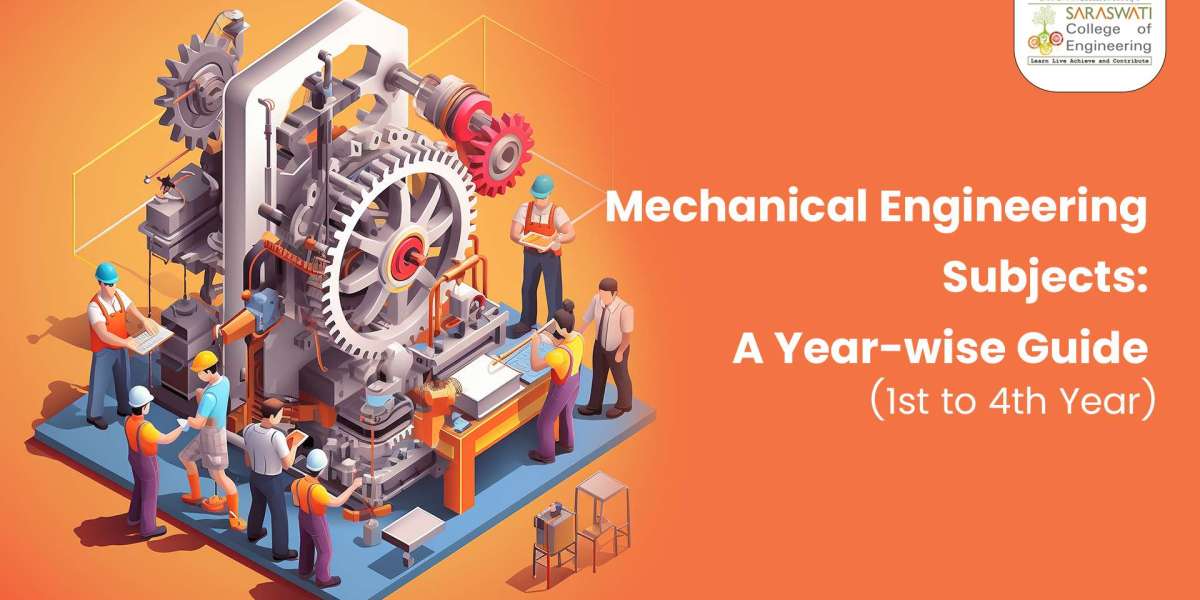Mechanical Engineering Subjects: What Does the Future Hold?
Mechanical engineering is one of the oldest and most versatile branches of engineering. It forms the backbone of innovation in industries such as automotive, aerospace, energy, manufacturing, and robotics. If you're planning to pursue or are currently pursuing a BTech in Mechanical Engineering, understanding the subjects from 1st to 4th year is crucial. This knowledge not only helps in your academics but also prepares you for a dynamic and rewarding career ahead.
Mechanical Engineering Subjects Year-Wise
1st Year Subjects
The first year lays the foundation for all engineering disciplines and introduces students to basic science and engineering principles.
- Engineering Mathematics-I & II
- Engineering Physics / Chemistry
- Basic Electrical & Electronics Engineering
- Engineering Graphics / Drawing
- Programming for Problem Solving
- Environmental Studies
- Workshop Practice
2nd Year Subjects
From the second year, the curriculum becomes more mechanical-centric with introductory core subjects.
- Thermodynamics
- Fluid Mechanics
- Material Science
- Strength of Materials
- Manufacturing Processes
- Engineering Mechanics
- Machine Drawing
- Applied Thermodynamics
3rd Year Subjects
The third year dives deeper into design, production, and analysis.
- Heat and Mass Transfer
- Theory of Machines
- Design of Machine Elements
- CAD/CAM
- Dynamics of Machinery
- Metrology and Quality Control
- Refrigeration and Air Conditioning
- Mechanical Vibrations
4th Year Subjects
Final year subjects focus on applications, project work, and elective specializations.
- Finite Element Method (FEM)
- Mechatronics
- Industrial Engineering & Management
- Robotics
- Electives (Renewable Energy, Automotive Design, etc.)
- Major Project
- Internship / Industrial Training
What Does the Future of Mechanical Engineering Hold?
The future of mechanical engineering is bright, dynamic, and evolving with technology. As industries move towards automation, sustainability, and smart manufacturing, the role of a mechanical engineer is no longer confined to machines and tools.
Key Trends Shaping the Future:
- Industry 4.0: Integration of IoT, AI, and robotics in manufacturing processes.
- Sustainable Engineering: Focus on renewable energy systems, electric vehicles, and green technologies.
- Advanced Materials: Development of lightweight, high-performance materials for aerospace and automotive industries.
- Additive Manufacturing (3D Printing): Changing how products are designed and manufactured.
Career Opportunities
Mechanical engineers now work in:
- Robotics & Automation
- Renewable Energy
- Aerospace & Automotive Design
- Smart Manufacturing
- Research & Development
Why Choose SCOE for Mechanical Engineering?
At Saraswati College of Engineering (SCOE), students receive in-depth academic training with a focus on industry-oriented learning, modern labs, and project-based education. The department supports innovation through workshops, competitions, internships, and live industry projects, ensuring students are ready for the challenges of tomorrow.
Explore more: engineering.saraswatikharghar.edu.in



